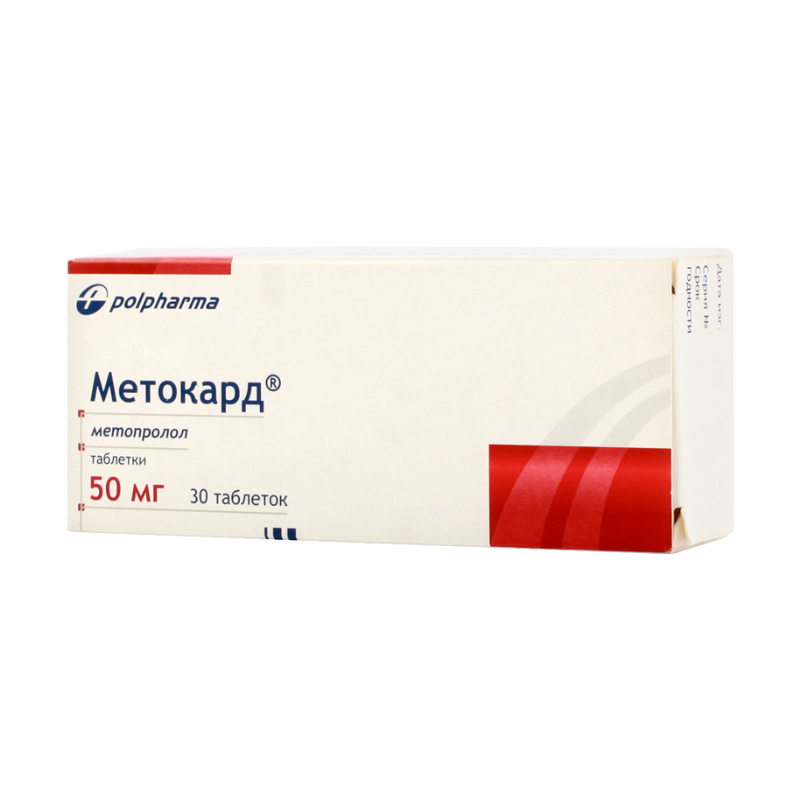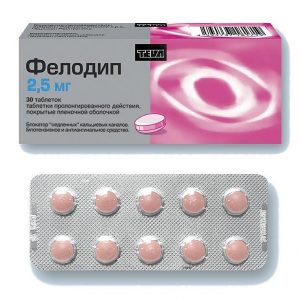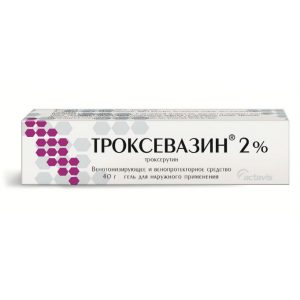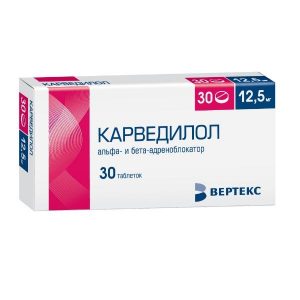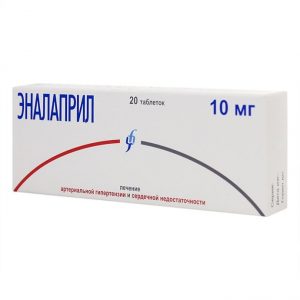Description
Latin name
Metocard
Release form
Tablets.
Packing
In 1 blister pack of 10 tablets. In a cardboard bundle 3 blisters.
Pharmacological action
metocardium – cardioselective beta 1-blocker,
The acute antihypertensive effect is due to a decrease in cardiac output, a stable antihypertensive effect develops within 2-3 weeks and is due to a decrease in renin synthesis and accumulation of plasma renin, inhibition of the renin-angiotensin system activity (of great importance in patients with initial renin hypersecretion) and central nervous system, recovery sensitivity of the aortic arch baroreceptors (there is no increase in their activity in response to a decrease in blood pressure) and, as a result, a decrease in peripheral sympathetic influences. Reduces elevated blood pressure at rest, with physical exertion and stress.
blood pressure decreases after 15 minutes, as much as possible after 2 hours and the decrease continues for 6 hours, diastolic blood pressure changes more slowly: a stable decrease is observed after several weeks of regular use. atrial fibrillation, sinus tachycardia with functional heart diseases and hyperthyroidism, the drug reduces heart rate or can even lead to the restoration of sinus rhythm. Prevents the development of migraine.
When used in medium therapeutic doses, unlike non-selective beta-blockers, it has a less pronounced effect on organs containing A2-adrenergic receptors (pancreas, skeletal muscle, smooth muscles of the peripheral arteries, bronchi and uterus) and on carbohydrate metabolism. When used in large doses (more than 100 mg / day), it has a blocking effect on both subtypes of A-adrenergic receptors.
Indications
– Arterial hypertension (as monotherapy or in combination with other antihypertensive drugs).
– IHD: myocardial infarction (secondary prevention – complex therapy), prevention of angina attacks.
– Heart rhythm disturbances (supraventricular tachycardia, ventricular extrasystole).
– Hyperthyroidism (combination therapy).
– Prevention of migraine attacks.
Contraindications
– Cardiogenic shock.
– AV blockade of the II or III degree.
– Sinoatrial blockade.
– SSSU.
– Severe bradycardia.
– Chronic heart failure in the decompensation phase.
– Prinzmetal’s angina pectoris.
– Arterial hypotension (in case of use for secondary prevention of myocardial infarction – systolic blood pressure less than 100 mm Hg, heart rate less than 45 beats / min).
– Lactation.
– Concomitant use with MAO inhibitors.
– Concomitant iv administration of verapamil.
– Age to 18 years.
– Hypersensitivity to metoprolol or other components of the drug, other beta-blockers.
Caution is advised to prescribe the drug for:
– Diabetes mellitus.
– Metabolic Acidosis.
– Bronchial asthma.
– Chronic obstructive pulmonary disease (pulmonary emphysema, chronic obstructive bronchitis).
– Obliterating diseases of the peripheral vessels (intermittent claudication, Raynaud’s syndrome).
– Chronic hepatic and / or renal failure.
– Myasthenia gravis.
– Pheochromocytoma.
– AV blockade of the I degree.
– Thyrotoxicosis.
– Depression (including history).
– Psoriasis.
– Pregnancy.
– Elderly patients.
Use during pregnancy and lactation
During pregnancy, Metocard should only be used if the intended benefit to the mother outweighs the potential risk to the fetus.
Metoprolol crosses the placental barrier. If necessary, the use of the drug during pregnancy in connection with the possible development in the newborn of bradycardia, arterial hypotension, hypoglycemia, it is necessary to ensure careful monitoring of fetal development. After delivery, it is necessary to ensure strict monitoring of the condition of the newborn for 48-72 hours.
Metoprolol is excreted in breast milk. The effect of metoprolol on the newborn has not been studied, therefore, if it is necessary to use Metocard during lactation, breast-feeding should be discontinued.
Composition
1 tablet contains: metoprolol tartrate 50 mg.
Excipients: lactose, povidone, talc, magnesium stearate, microcrystalline cellulose, rice starch.
Dosage and administration
The drug is taken orally at the same time as eating or immediately after eating. Tablets can be divided in half, but not chewed, and washed down with liquid.
Dose is determined individually depending on tolerability and therapeutic efficacy. The maximum dose is 400 mg / day.
With arterial hypertension, the initial dose is 50-100 mg / day. in 1-2 doses. If necessary, the daily dose is gradually increased to 100-200 mg. In the absence of a satisfactory therapeutic effect, metocard can be prescribed in combination with other antihypertensive agents. The maximum daily dose is 200 mg.
With angina pectoris, arrhythmias, and the prevention of migraine attacks, 100-200 mg / day are prescribed. in 2 doses (morning and evening).
In the secondary prevention of myocardial infarction, a dose of 200 mg / day is prescribed. in 2 doses (morning and evening).
With functional impairment of cardiac activity, accompanied by tachycardia, the drug is prescribed at a dose of 100 mg / day. in 2 doses (morning and evening).
In elderly patients, with impaired renal function, as well as with the need for hemodialysis, dose adjustment is not required.
In case of impaired liver function, the dose should be reduced depending on the clinical condition.
Side effects of
From the nervous system and sensory organs: headache, dizziness, nightmares, insomnia, depression, short-term amnesia, disorientation, paresthesia visual impairment, dry eyes, tinnitus.
From the cardiovascular system and blood (hematopoiesis, hemostasis): bradycardia, palpitations, hypotension, violation of AV conduction, circulatory failure, thrombocytopenia, agranulocytosis.
From the respiratory system: bronchospasm, suffocation.
From the digestive tract: dry mouth, heartburn, flatulence, pain in the stomach, vomiting, constipation / diarrhea.
Allergic reactions: itching, rash, psoriatic skin changes.
Other: Peyronie’s disease, myalgia, alopecia.
Drug Interaction
Concomitant use with MAOIs is not recommended due to the significant increase in antihypertensive activity. The interval between administration of MAO inhibitors and metoprodol should be at least 14 days.
Simultaneous administration of verapamil may provoke cardiac arrest. Concomitant administration of nifedipine leads to a significant decrease in blood pressure.
On the background of simultaneous use with Metocard, inhalants for general anesthesia (hydrocarbon derivatives) increase the risk of myocardial function suppression and development of arterial hypotension beta-stimulants, theophylline, cocaine, estrogens (sodium retention), indomethacin and other NSAIDs (sodium retention and blocking of prostaglandin synthesis by the kidneys) attenuate the antihypertensive effect.
There is an increase in CNS depressant effects when combined with ethanol summation of the cardio-depressive effect – with means for general anesthesia, increasing the risk of peripheral circulation disorders – with ergot alkaloids.
When co-administered with oral hypoglycemic agents, their effect with insulin may be reduced – increasing the risk of hypoglycemia, increasing its severity and duration, masking some symptoms of hypoglycemia (tachycardia, sweating, increasing blood pressure).
When combined with antihypertensive agents, diuretics, Nitroglycerin or slow calcium channel blockers may develop a sharp decrease in blood pressure (special caution is required when combined with prazosin).
With the use of Metocard with verapamil, diltiazem, antiarrhythmic agents (amiodarone), reserpine, alpha-methyldopa, clonidine, guanfacine, agents for general anesthesia and cardiac glycosides, an increase in the severity of AV rate is observed.
If metoprolol and clonidine are taken at the same time, with the withdrawal of metoprolol clonidine is canceled after a few days (due to the risk of withdrawal syndrome).
Inductors of liver microsomal enzymes (rifampicin, barbiturates) lead to increased metoprolol metabolism, decreased plasma metoprolol concentration, and decreased effect. Inhibitors of microsomal liver enzymes (cimetidine, oral contraceptives, phenothiazines) – increase the concentration of metoprolol in blood plasma.
Allergens used for immunotherapy or allergen extracts for skin tests when used together with metoprolol increase the risk of systemic allergic reactions or anaphylaxis, iodine-containing X-ray contrast agents for I / O administration – increase the risk of anaphylactic reactions.
Metoprolol at the same time reduces the clearance of xanthine (except for dipillin), especially with the initially increased clearance of theophylline under the influence of smoking, decreases the clearance of lidocaine, increases the concentration of lidocaine in blood plasma.
Metocardium, when used at the same time, enhances and prolongs the action of anti-depolarizing muscle relaxants prolongs the anticoagulant effect of coumarins.
The combined use of Metocard with ethanol increases the risk of marked BP.
Tri- and tetracyclic antidepressants, antipsychotics (neuroleptics), sedatives and hypnotics when combined with metoprolol increase CNS depression.
Storage conditions
The drug should be stored in a dry, dark place at a temperature not exceeding 25 ° C.
Expiration
3 years.
Active ingredient
Metoprolol
Pharmacy terms
Prescription
dosage form
drug venal form
tablets
Polpharma, Poland
